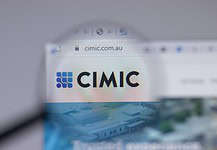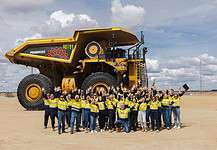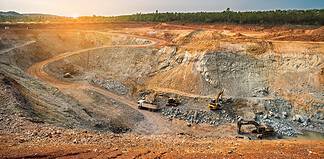BRIDGING the gap between university graduates and careers in the mining industry was high on the agenda at the recent Association of Mining Companies (AMEC) conference in Perth.
Student Edge head of research Cristiano Lima detailed the finding of two surveys of around 3000 young people (1000 between 15-29 years old and 2000 between 12-24 years old), in which questions were asked about their perceptions of mining as a career pathway.
Around 60pc of students said they knew nothing about mining, and Mr Lima said the surveys showed the main reason for the decline in graduates pursuing careers in mining could be due to misconceptions around what jobs were available and concerns around automation and the boom-bust cycle.
“Students said they didn’t know much about mining or what jobs are available,” he said.
“Students thought it was dirty, difficult, involved digging in remote locations, and that mining equals coal – that’s a perception young people have.
“Creating awareness about mining careers and exploration would help create a shift in the appeal of those careers.”
Mr Lima described common fears by university students that by the time they graduated, automation might have taken over or there wouldn’t be any jobs available in the future.
“The use of the word technology can be polarising to young people,” he said.
“There is a lot of concern that automation will take their jobs, they have seen their parents live through a GFC, there’s a lot of young people that think they won’t have a nine-to-five job, so in terms of job security the industry needs to communicate confidence to young people that whilst it might be a bust and boom type of industry, there are a lot of skills to be gained that could be transferrable later on.”
Sustainability was another key factor students looked for as a career and Mr Lima recommended that, as an industry, employers should talk about that aspect of their business.
Around 18pc surveyed said they would be proud to work in the industry, only 12 pc reviewed the industry as ethical and a low 13pc rated the industry as an appealing career choice.
Mr Lima said this boiled down to a lack of knowledge about what mining offers as a career being a larger barrier than ethical concerns – but that companies should not stop addressing these ethical concerns and instead show young people that the industry is an opportunity, not a threat.
“Renewables was the most interesting and exciting advancement in technology for young people – these are the areas within the industry that get young people excited,” he said.
“Whether coal was on the way out to be replaced by renewable technology, whether mining is sustainable and would offer secure job opportunities for the future were all issues raised by young people.
“We can make mining more appealing with the language and messages that we put across.”
Mr Lima said that students understand how important the mining industry is for the economy but that it lacks personal relevance – and that’s where employers can take steps to change perceptions of the industry with open days, face-to-face mentoring and by promoting graduate programs and internships.
“There’s an opportunity here to expand and broaden young people’s understanding of all the different careers available in the industry,” he said.
“Fewer students are set on a single career choice and the large majority are on the fence about what they want to do, so it’s a great opportunity to provide them with some guidance about what’s available.”








































